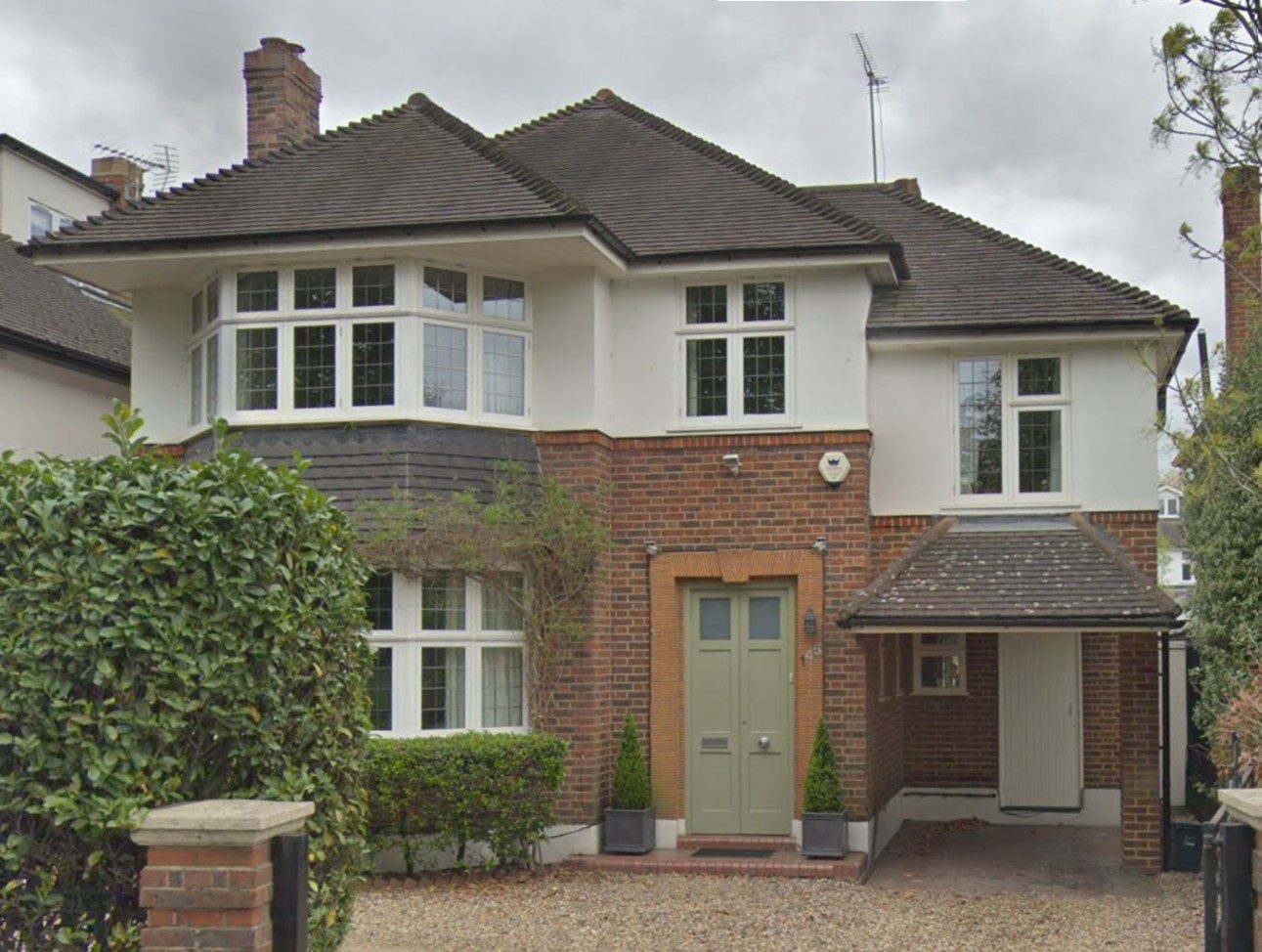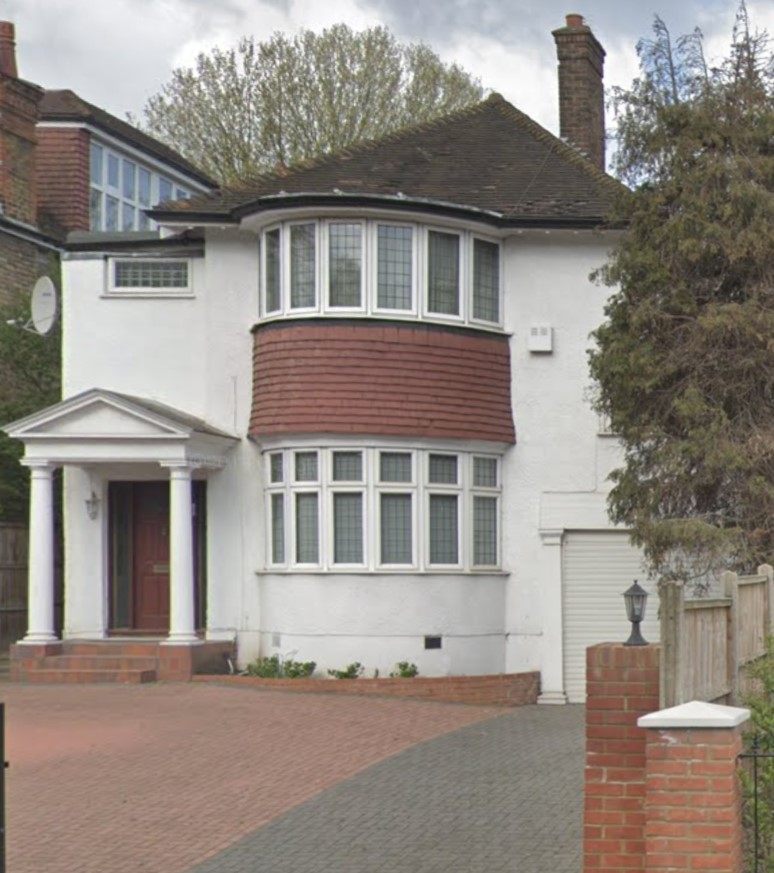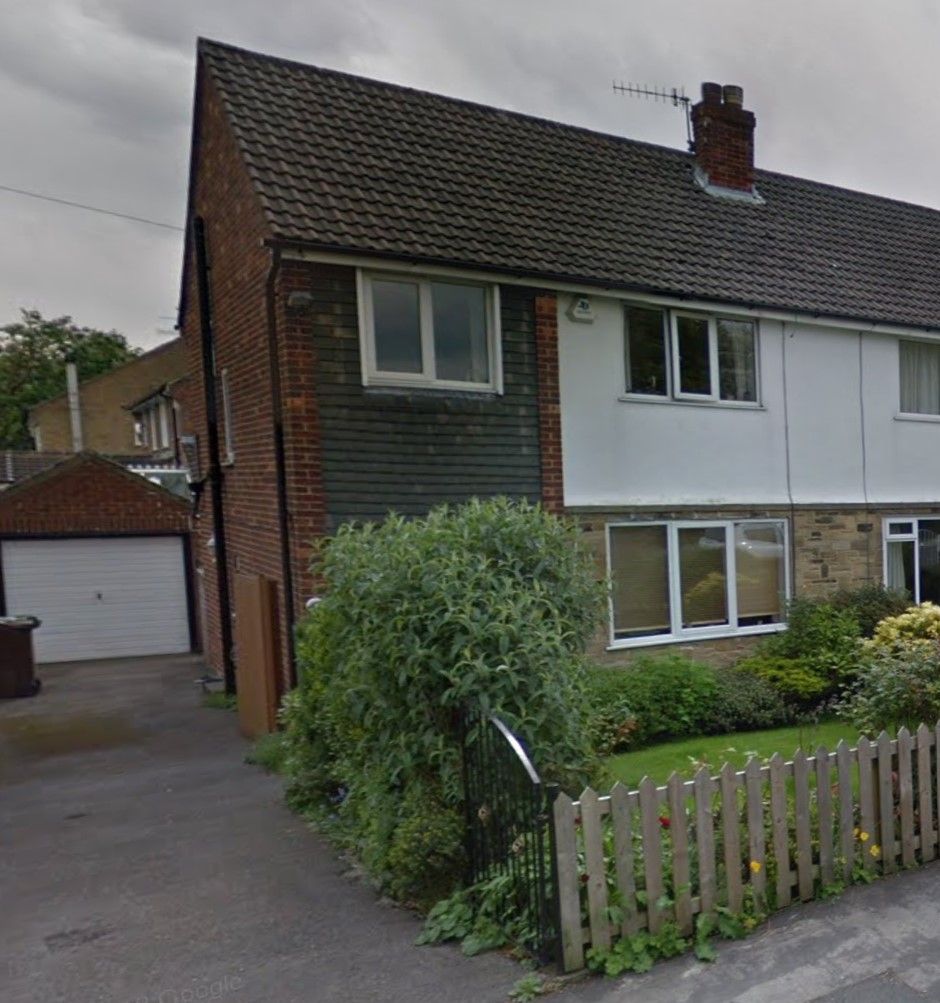
- Release tax-free equity from your home at 5.14%
- No monthly repayments
- Use the money to buy another property
- Do you still have a mortgage? No problems
- Continue to stay in your home for as long as you like
How much can I get?
You can get 60% of your property’s valuation. For example, if your house is valued at £220,000, you can borrow £132000.



Non-Standard Property Home Index

It’s widespread to find individuals searching for interest-only lifetime mortgages, lump sum lifetime mortgages or home reversion schemes. However, Key Retirement like The Exeter Equity Release are keen to see evidence of your circumstances in the form of investment statements.
Retired business owners that may be interested in tenants in common equity release
- Activities of other membership organizations n e c Howden
- Manufacture of cordage, rope, twine and netting Rawtenstall
- Translation and interpretation activities Aylesbury
- Taxi operation Winsford
Does Mansfield Building Society have favourable reviews for equity release?
Yes, Mansfield Building Society reviews are splendid for equity release.
- Skipton Building Society Over 75 Mortgage
- Lifetime Mortgage Equity Release Schemes
- Equity Release Bisf Houses
- New Home Mortgage
- Can I Get A Mortgage At 60
- Nationwide Pensioner Mortgage Comparison
Understanding Tenancy in Common and Joint Tenancy in the UK
Two prevailing forms of property ownership in the UK are Joint Tenancy and Tenancy in Common. Delving into these concepts is crucial for homeowners, particularly when considering equity release, property maintenance, and navigating complex situations like divorce or death.
The Basics of Property Ownership Types
Joint Tenancy in Equity
- Definition: In a joint tenancy, all co-owners possess equal property shares. This means that no owner can claim a specific part of the property as theirs. When one owner dies, their interest in the property automatically passes to the surviving owner(s), a process known as the Right of Survivorship.
Tenancy in Common
- Definition: Here, each co-owner possesses a defined share in the property, which can be equal or unequal. If a co-owner dies, their share does not automatically pass to the surviving owner(s). Instead, it goes according to their will or intestacy laws if no will exists.
Common Law Tenancies and Equitable Lease
- Definition: Not to be confused with Tenancy in Common, a common law tenancy agreement is a type of residential tenancy that doesn’t fall under the assured shorthold tenancy regime. An equitable lease, on the other hand, exists when someone has a right to occupy a property but does not have the legal title to it.
Implications for Mortgage and Equity Release
Both forms of ownership can secure a mortgage, but the mortgage terms might vary based on the type of tenancy:
- Tenants in Common Mortgage: Lenders will typically require all tenants in common to be jointly responsible for the mortgage, regardless of the size of their individual shares in the property. This ensures the lender can pursue any or all tenants for repayment.
- Equity Release Tenants in Common: If one party wishes to release equity, all parties must typically agree due to the shared nature of the property.
Complexities of Tenancy in Common
Unequal Shares and the Declaration of Trust
In a tenancy in everyday scenarios, co-owners can possess unequal shares in the property. The exact shares are usually documented in a declaration of trust tenants in common unequal shares template. This legal document specifies each owner’s stake and how the proceeds from any future sale should be divided.
Partitioning, Title Split, and Tax Implications
Partitioning relates to the division of co-owned property so that each owner ends up with a portion that belongs solely to them. A title split can be seen as an official recognition of this partitioning. However, such actions can have significant tax implications, especially concerning capital gains tax.
Tax Implications of Splitting Title: If co-owners decide to split the title of their property, there might be capital gains tax implications, depending on whether the property has increased in value.
Challenges: Divorce, Death, and Loans
Navigating co-ownership can become complex, especially during life’s more challenging moments:
- Divorce Tenants in Common: When a couple’s co-owners decide to separate, their shared property might need to be sold, or one partner may need to buy out the other.
- Death of a Tenant in Common: As mentioned, the share of a deceased tenant does not automatically go to the surviving co-owners. It’s based on the deceased’s will or the laws of intestacy. This can have implications for inheritance tax.
- Tenant Loans: Co-owners might decide to take out loans against the property. It’s essential to understand the terms and implications of such loans, especially in a Tenancy in Common scenario.
Tenancy in Common: Advantages and Disadvantages
Pros
- Flexibility in Ownership Shares: Co-owners can own different proportions of the property, reflecting their contributions or agreements.
- Estate Planning: Co-owners can choose who inherits their share of the property upon their death.
Cons
- Potential for Conflict: Disagreements can arise over responsibilities for mortgage payments, maintenance, or decisions about selling the property.
- Complicated Sale Process: Selling the property or refinancing can be more complex, as all co-owners must agree.
- Inheritance Tax Implications: If a co-owner dies and their share doesn’t pass to a spouse, the property might be subject to inheritance tax.
Forcing a Sale: Legal Rights and Processes
A common issue that arises in Tenancy in Common is when one co-owner wants to sell the property, but the other doesn’t. The party wishing to sell can pursue a forced sale of the property.
- Force Sale of Jointly Owned Property: To initiate this, the co-owner must apply for a court order for sale. The property can be sold if granted, and the proceeds are divided according to each owner’s share.
- Costs: Obtaining an order for sale involves legal costs. It’s essential to weigh these costs against the potential benefits of selling the property.
Maintaining the Property: Roles and Responsibilities
Owning property brings responsibilities, from mortgage payments to maintenance. When multiple parties are involved, it’s crucial to delineate roles clearly:
- One Bell Property Maintenance: This hypothetical company could serve as a metaphor for the need for clear communication and shared responsibility in maintaining a jointly-owned property.
Different Types of Tenancy: A Broad Perspective
Beyond the realm of Tenancy in Common and Joint Tenancy, there exists a world of different tenancy types:
- Beneficial Joint Tenants refer to a situation where two or more people have equal rights to the entirety of a property, similar to joint tenancy.
- Equitable House Tenancies are when a person has a right to stay in a home even if they don’t legally own it.
Navigating the complexities of joint property ownership in the UK requires careful consideration, clear communication, and, in many cases, professional advice. Whether contemplating shared tenancy agreements, exploring the potential of equity release, or seeking clarity on the intricacies of tax implications, co-owners are encouraged to be proactive and informed.
- Legal And General Pensioner Mortgage Calculator
- Aldermore Over 70 Mortgage
- Equity Release Belfast Broker
- Mansfield Building Society Interest Only Mortgage
- Newcastle Building Society Over 75 Mortgage
- Ni Interest Only Lifetime Mortgage
- Buckinghamshire Building Society Equity Release Broker
- Rbs Retirement Mortgage Bad Credit
- Yorkshire Building Society Lifetime Mortgage
- Gloucester Building Society Later Life Mortgages
- Best Equity Release Deals
- Thatched Roof
- Mortgages For Retirees
- Teachers Building Society Lifetime Mortgage
- Edinburgh Mortgage Rates 2025
- Ex Local Authority Pensioner Mortgage
- West Bromwich Building Society Pensioner Mortgage
- Flying Freehold Over Shared Passageway
- Crown Equity Release Reviews
- Thederbyshire.Co.Uk
- Lv Equity Release On Buy To Let
- Mortgage On Contaminated Land
- Just Retirement Equity Release Pensioner Mortgage Interest Rate
- Leek United Interest Only Mortgage
- Key Retirement Retirement Mortgage
- Mortgages For Pensioners
- The Darlington
- Beverley Bs Equity Release Providers
- Nottingham Building Society Mortgages
- Market Harborough Building Society Pensioner Mortgage Calculator
- Rates Equity Release Providers
- High Rise Flat Over 75 Mortgage
- Santander Retirement Mortgage
- Age 50 Equity Release Interest Only
- Nationwide Equity Release
- Liverpool Victoria Equity Release Advice
- Yorkshire Bank Mortgage Rates 2025
- Best Equity Release
- Post Office Lifetime Mortgage
- Nationwide Retirement Mortgage Home
- Purchase Lifetime Mortgage
- Crown Equity Release Pensioner Mortgage
- House With Annex
- Rbs Lifetime Mortgage Home
The lender will want to know if the property is a semi-detached freehold house or a Leasehold house and if the resident is an AST Tenant.
What are Mansfield Building Society interest rates for equity release?
Mansfield Building Society rates for equity release are 2.18% APRC.
- Aviva Lifetime Mortgage
- More 2 Life Flexi Choice Voluntary Payment Super Lite
- Canada Life Second Home Voluntary Select Plan
- More to Life Capital Choice Plan
- Nationwide Interest Only Lifetime Mortgage
- NatWest Equity Release
- More to Life Tailored Choice Plan
- Equity release for tenants in common
- Stonehaven Equity Release Scheme
- Saga home reversion schemes
- Aviva Equity Release Schemes
- Bridgewater Equity Release Schemes
- Canada Life Lifestyle Gold Flexi
- L&G Legal & General Flexible Plus Lifetime Mortgage
- More to Life Flexi Choice Voluntary Payment Super Lite
- TSB Equity Release for tenants in common
- NatWest Equity Release Schemes
- Royal Bank of Scotland Interest Only Lifetime Mortgage
- Canada Life Equity Release Schemes
- Liverpool Victoria LV= Lump Sum Plus Lifetime Mortgage
- Lloyds Bank Lifetime Mortgage
Does Mansfield Building Society do Equity Release?
Yes, Mansfield Building Society Equity Release is 1.86% MER.
Equity Release Loan To Value
The more aged you are and the more serious your illnesses you are, the more tax-free money you can release.
Disadvantages of Lifetime Mortgages
Interest-only lifetime mortgages can reduce the value of your estate. Lump-sum lifetime mortgages may impact the ability to claim benefits. You may need to pay a broker’s fee, and some products may expose you to changes in interest rates.
Providers for Equity Release
- Legal and General
- Pure Retirement
- Lifetime Mortgage from L&G
- Maximum cover Equity Release

Does Mansfield Building Society offer Pensioner Mortgages?
Yes, Mansfield Building Society Pensioner Mortgages are 5.81% APRC.

Tough to mortgage home variants include rent charges properties with a high estate rentcharge, properties close to mining works, areas of landfill, areas of recent flooding or subsidence, uninhabitable properties, mundic homes and Reema Hollow panel, Schindler and Hawksley SGS, Stent, Stonecrete, Stour, Tarran, Underdown, Unity and Butterley, Waller, Wates, Wessex, Winget and Woolaway.

Does Mansfield Building Society offer Retirement Mortgages?
Yes, Mansfield Building Society Retirement Mortgages are 2.24% APRC.
Tough to mortgage property titles can include grade ll Listed houses (grade C in Scotland and B2 in Northern Ireland), properties with a single annexe or other self-contained part of the property, grades l and ll* Listed Buildings in England & Wales (Grades A and B in Scotland; A, B+ and B1 in Northern Ireland), properties where there is a self-contained part of the property or annexe, i.e. basement flat etc and properties where Japanese Knotweed is present.

Areas where equity release is common
- Fakenham
- Budleigh Salterton
- Goole
- Chapel-en-le-Frith
- Crawley
- Ross-on-Wye
- Royal Leamington Spa
- Warwick
- Crook
- Gorleston-on-Sea
- Thaxted
- Modbury
- Hornsea
Does Mansfield Building Society do Equity Release Under 55?
Yes, Mansfield Building Society Equity Release Under 55 is 2.03% APR.
Hard-to-finance home types can include properties with post-1945 asbestos or similar composition roof tiles, properties with any externally applied insulation to the walls after construction, large concrete panel systems, freehold/feuhold flats (Scotland only) and flats above or adjacent to commercial premises.
What percentage can be released?
- 60% monthly payment lifetime mortgage The Exeter Equity Release
- 30% loan to value interest-only lifetime mortgages Clearly Loans
- 50% loan to value (LTV) home reversion schemes Equifinance
- 60% LTV lifetime mortgage with flexible drawdown cash release Just Retirement

Difficult-to-finance home types can include properties in the course of construction or pre-construction, properties where letting arrangement where the tenancy agreement is not appropriate, feuhold/freehold properties (including flats) in Scotland, commonhold properties and properties with leased solar panels.

Some of the most popular loan-to-value ratios for Aviva mortgages over 70, Zurich later life interest-only mortgages over 70, Leeds Building Society over 60 lifetime mortgages no fees, Skipton Building Society RIO mortgages over 75, Newcastle Building Society later life interest-only mortgages over 70, and Progressive Building Society later life borrowing schemes over 55 are 35%, 55%, and 70%.

Popular LTV ratios of LV= interest-only mortgages for over-60s, More to Life interest-only mortgages for over-60s, One Family equity release schemes for over55s, Yorkshire Bank mortgages for 60-plus pensioners, Principality Building Society mortgages for 60-year-olds, and Axa lifetime mortgages for people over 55 are 45%, 60%, and 70%.

Hodge Lifetime Retirement Mortgages
The popular loan-to-value percentage ratios of Lloyds pensioner mortgages over 60, Barclays retirement mortgages over 60, NatWest lifetime mortgages for over 60s, L&G lifetime mortgages for over 55s, Bank of Scotland over 60 lifetime mortgages, and Nationwide BS interest-only mortgages for over 70s are 50%, 60%, and 65%.
Legal and General Drawdown Lifetime Mortgages
Commonhold• Freehold flats and maisonettes• Flying freeholds over 10% of total floor area
Freehold flats where the freehold is over the whole building and is subject to leases on other flats•High service charges on leaseholdproperties•Ground Rents more than £250 per annum and/or on an escalating basis
Freehold and leasehold houses and bungalows• Leasehold flats and maisonettes Flying freehold less than 10% of total floor area
Common pensioner loan products include TSB lifetime mortgages, Barclays mortgages for people over 65, NatWest interest-only mortgages for people over 70, Legal and General later life mortgages, and Nationwide BS retirement interest-only mortgages.
Does Mansfield Building Society offer Lifetime Mortgages?
Yes, Mansfield Building Society does lifetime mortgages at 2.3% APR. Mansfield Building Society Lifetime Mortgages have an LTV of 60%.
